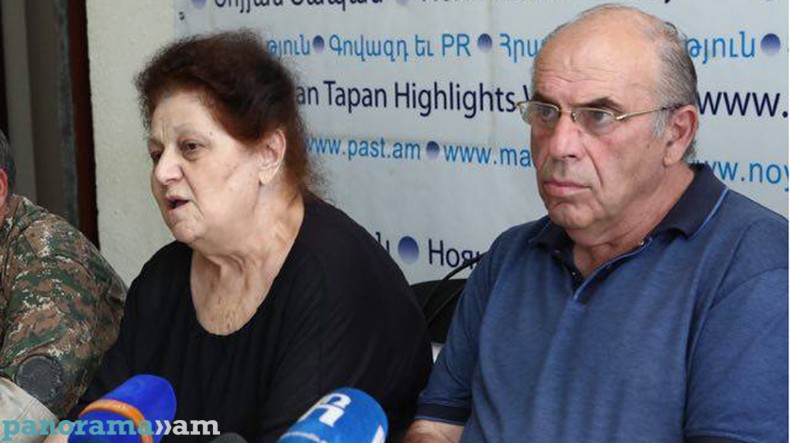
Former freedom fighters wish to establish town near Talish and live there
“Former freedom fighters are ready to leave for the area near Talish village to establish a town and settle there,” chairperson of the Board of Trustees of Talish Foundation, Melita Khalapyan said during a press conference.
According to her, Talish has turned into a neutral zone. “As long as this situation of neither war nor peace remains we have to implement our project aiming at preserving this area. Our task is to have a second line of defence. We wish to establish a town, where strong-willed people will live ready to fight in the second line of defence to help our heroes in the frontline”.
Melita Khalapyan noted that they’ve applied to the Armenians from all over the world and sent letters to the governments of Armenia and Artsakh to support them bring this project to life.
Karabakh war veteran and chairman of the Union of Greeks of Armenia and Nagorno-Karabakh, Eduard Polatov noted that their main aim is to enhance the defence. “Talish is a small village, if we build a town next to it, living there will be safer. We want to work and live there. Freedom fighters, who’ve lived through the war, wish to join us”.
He also said that no one can prevent them from establishing the town, as they intend to implement their project even with their own means. “We can buy land and go live there with our own money but we need the authorities to support us. 1.800 million USD has been collected for the project with the support of “Hayastan” All Armenian Fund”.
Mr. Polatov added that 300 people have already applied to join the project.
Related news
- Artsakh Republic President visits Talish inhabitants temporarily residing in Charentsavan
- OSCE to conduct monitoring in Talish village
- Italian TV channel covers Azerbaijani soldiers’ cruelties against civilians of village Talish
- Azerbaijan used mortars in Martakert and Talish directions
- Children of Talish village resume their studying
- NKR Talish village headman denies Azerbaijani media’s disinformation about ‘confronting soldiers’
Newsfeed
Videos






























